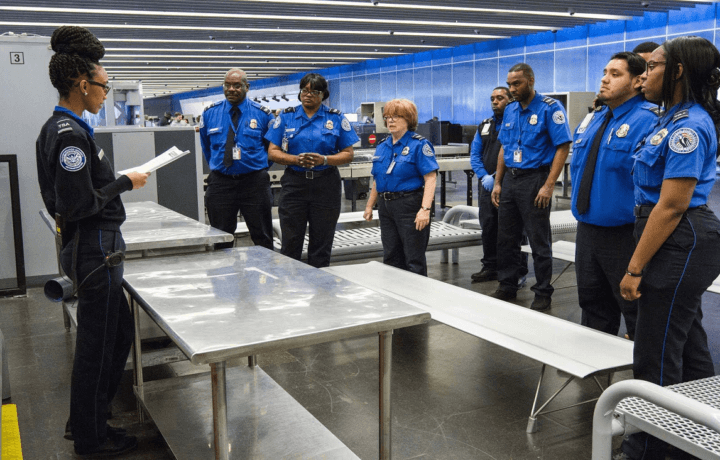Who’s at work during the government shutdown, and who isn’t? Essential personnel are still on the job, but many are working without pay. Because national security positions are the most likely to be considered critical/essential, the shutdown has a disproportionate impact on national security.
The Department of Defense is not affected, since for the first time in 20 years, it has both its appropriations and authorization acts passed before the start of the fiscal year on October 1. But three of the agencies currently without funding—the Departments of State, Justice, and Homeland Security—contribute as much to American security at home as the Pentagon. Although the most critical employees remain on the job, they do so without pay.
The Anti-Deficiency Act codifies in statute the Constitutional provision that the government can’t spend money that Congress hasn’t appropriated, as has happened here. That includes working towards a paycheck for which the government doesn’t have money to pay. The act contains an exception for “emergencies involving the safety of human life or the protection of property,” but not for paying the people excepted.
At the Department of Justice, which includes the FBI, U.S. Marshals Service, Bureau of Alcohol, Tobacco, Firearms and Explosives (which, before I quit smoking, described my lifestyle), Bureau of Prisons, and the National Security Division that prosecutes espionage cases, 95,302 individuals, or 84 percent of the department’s 113,381 employees identified in a September 2018 contingency plan, are on the job without pay.
The Transportation Security Administration is caught-up in the drama. The union representing TSA screeners reports that officers have been calling out sick rather than work without pay, but the Department of Homeland Security first denied this, then said it wasn’t a big deal. “Call outs began over the Holiday period and have increased, but are causing minimal impact,” the DHS said in a statement, “given there are 51,739 employees supporting the screening process.”
Even the people charged with defending the frontlines in the battle against illegal immigration are going without their pay. In Customs and Border protection, an estimated 54,935 of the 60,109 employees who were on the payroll in November (according to DHS’s own contingency plan from December) are still on the job. And at U.S. Customs and Immigration Enforcement, 16,254 of its 20,052 employees are still working.
I am flabbergasted that we are making a statement about border security by forcing those charged with maintaining it to work without pay. These exempted employees will eventually get paid for this time, since Federal labor law prohibit any employer from forcing anyone to work without pay. But there is no guarantee that back pay for furloughed employees will be included in future appropriations.
I understand the president’s desire to find a way to force a recalcitrant Congress to fund his highest domestic priority. But the people he needs most in this fight are the people on the ground, on the job, protecting national security.



